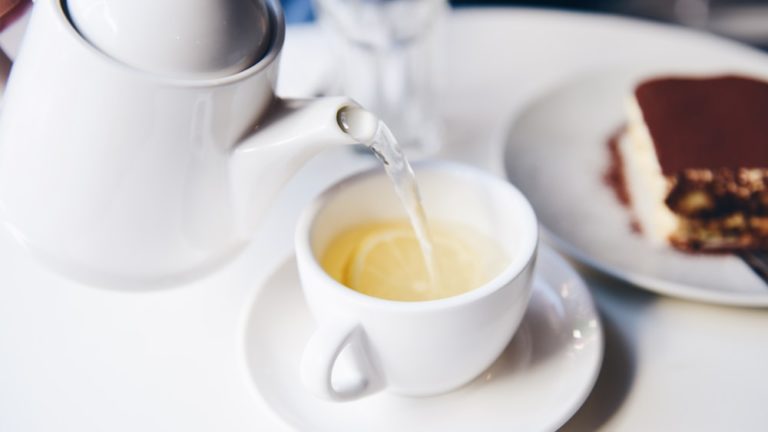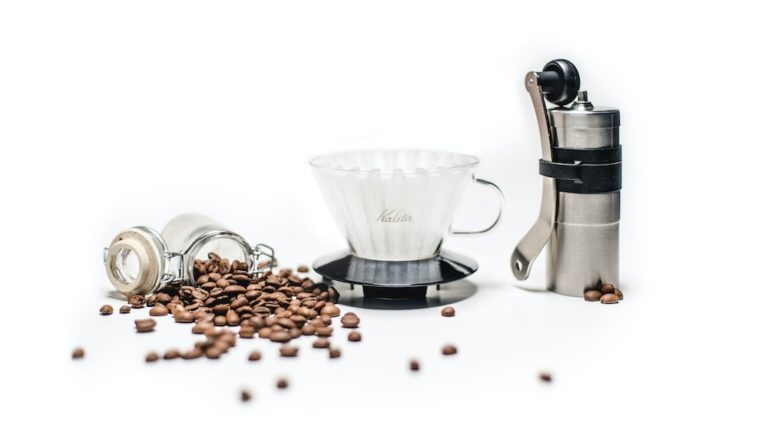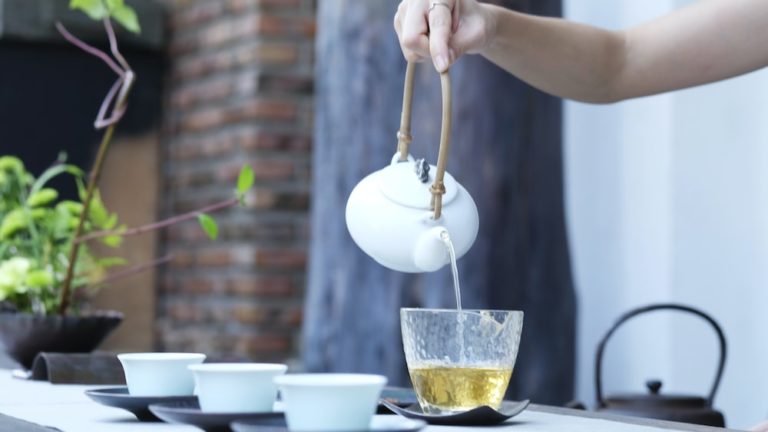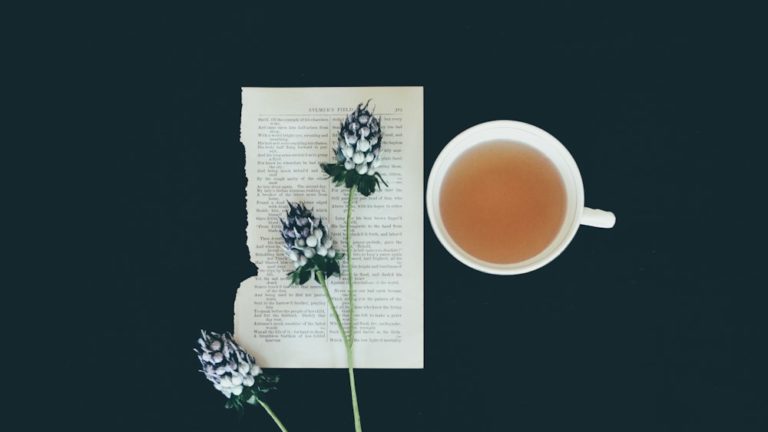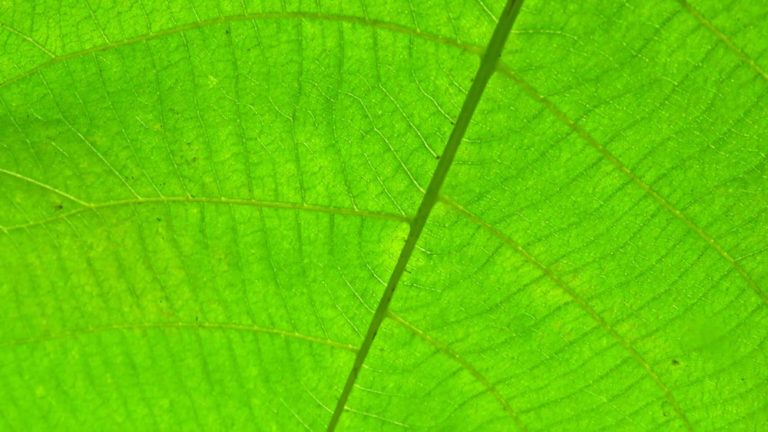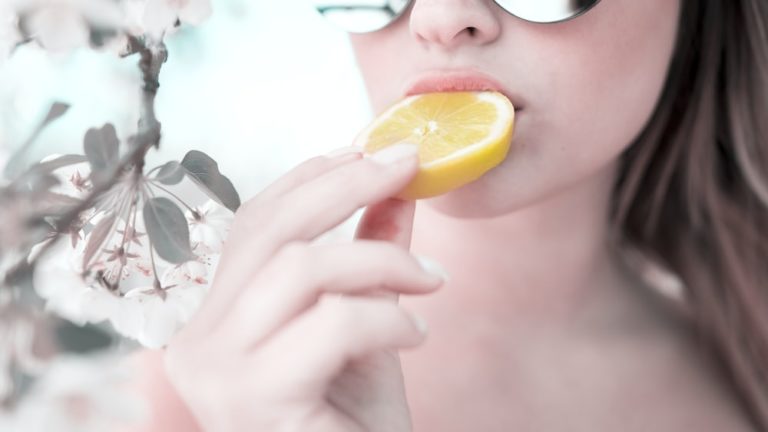Magnificent Mullein Tea: Discover The Benefits And More!
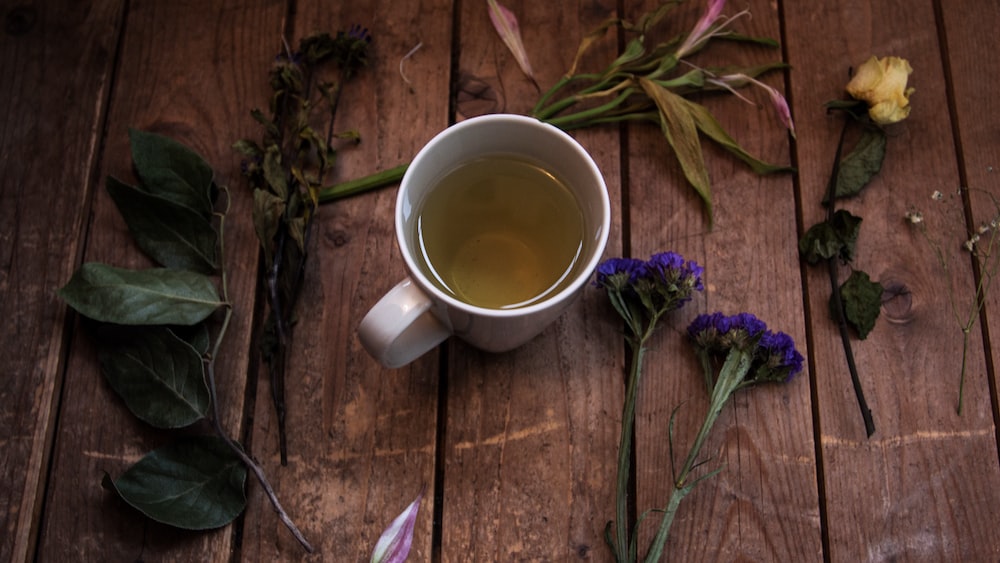
Magnificent Mullein Tea: Discover The Benefits And More!
Hey tea aficionado, get ready to be launched into the fascinating realm of mullein tea. Imagine resting on a plush, green hill overlooking a centuries-old meadow. In your cup, a rich, golden brew emanates a mild, refreshing aroma, hinting at centuries-old herbal traditions. Well buckle up, because you’re about to discover the magic of mullein tea. Isn’t that the kind of tea adventure you’re yearning for?
The world of tea is vast and diverse, right? From the tangy zest of classics like Earl Grey to the adventurous flavors of exotic infusions such as mullein, there’s a brew for every mood and moment. But mullein tea isn’t just another name in an encyclopedia of teas. It’s a tea with countless health claims, a vibrant history, and a taste that makes you twitch your nose in delight. Get excited, because this journey into the world of mullein tea will be equal parts educational and exhilarating!
Don’t you just hate it when healthy stuff tastes, well, too healthy? Fear not! Mullein tea is as flavorful as it is beneficial. Isn’t that an alluring conundrum? Oh, we can see your whiskers quivering with anticipation already!
Understanding Mullein Tea
To truly appreciate the magnificence of mullein tea, we need to dive deep into its vivacious essence and explore its nuances. Buckle up as we take you on this intimate journey, inviting you to grasp the full magnificence of this health-packed brew.
What is Mullein Tea?
Have you ever come across a uniquely tall, unmissable, fuzzy-leafed plant during a casual stroll in the countryside? If you’re nodding yes, then you’ve met our star player – the mullein plant. Mullein tea is essentially an herbal infusion made from the leaves of this plant. The beauty of this tea is in its simplicity. We told you mullein tea was no ordinary brew, didn’t we?
The process to make the tea involves delicate steps – the leaves are harvested, dried, and steeped to create a soothing brew packed with herbal goodness. From the moment you pour in the hot water over the dried mullein, you’ll witness the magic – the golden infusion that starts diffusing slowly, resulting in an aromatic, nutty, and slightly sweet tea.
Mullein tea is a uniquely aromatic and soothing herbal infusion made from the dried leaves of the mullein plant.
Origin and History of Mullein Tea
Around 2,000 years ago, travelers named mullein ‘Candlewick Plant’, as they used its tall, tapered stem as a torch to light their way. Crazy, huh? Who knew you could make an excellent cup of tea from the same? Turns out, ancient civilizations did. Mullein tea has a rich history dating back to ancient Greek times.
Hippocrates, the legendary Greek physician, sang praises of mullein’s health benefits and its effectiveness in treating lung diseases. The magic of mullein made its way to North America, where the Native Americans started brewing its leaves for a variety of health conditions.
Over time, mullein tea has been sipped, gulped, and savored in numerous cultures, each adding their unique tweaks to the brewing process. From a humble herbal remedy making rounds in the ancient world, today various brands have brought it onto the shelves of supermarkets, crafted in attractive products. That’s quite the journey, isn’t it?
The Health Benefits of Mullein Tea
You’ve read a lot about the wonder that is mullein tea, and you might be wondering if it’s really as good as we claim. Can sipping the steeped essence of a fuzzy-leafed plant offer any tangible health benefits? Well, let’s find out!
Treating Respiratory Conditions
Can you believe, sipping on some nice warm mullein tea can put those chesty coughs and colds on the run? It’s true, indeed! Mullein has long been used as a remedy for respiratory conditions, and there’s a solid reason behind it.
The mullein plant houses saponins – a group of compounds known for their expectorant properties. These compounds aid in clearing mucus from the body, and that’s good news for anyone dealing with a pesky cough or chest congestion.
Research shows that mullein tea may even help with more chronic conditions like asthma and bronchitis. That’s some powerful stuff, right? Stick around, there’s more where that came from!
Fighting Viral Infections
Now, wouldn’t it be lovely if your afternoon tea could ward off those nasty infections? Turns out, mullein tea has prominent antiviral properties. According to studies, the mighty mullein can fight against influenza, herpes, and even some respiratory viruses.
The secret? A compound known as verbascoside. This natural component has shown promise in the fight against flu and other viruses. Drink up, and let this golden liquid work its viral-fighting magic. How about that for a tea triumph, eh?
Antibacterial Properties
“But can it shield against bacteria too?” I hear you ask. Well, yes! Our superstar brew doesn’t discriminate in the battle against unwelcome intruders. Mullein tea, with its antibacterial properties, is also effective against various harmful bacteria.
The key warrior here is mullein oil. Studies show that the oil derived from mullein shows antibacterial activity against strains like Staphylococcus aureus, Klebsiella pneumoniae, and more. So, sit back, sip on, and let the mullein do its job!
Nutritional Content of Mullein Tea
Great, so we have established that mullein tea is quite the infantry in the battle for good health, but what about its nutritional scorecard? How does it stack up? The answer: brilliantly! Its nutritional makeup is just as impressive as its medicinal virtues. But we’ll explore that in the next section. Stay tuned!
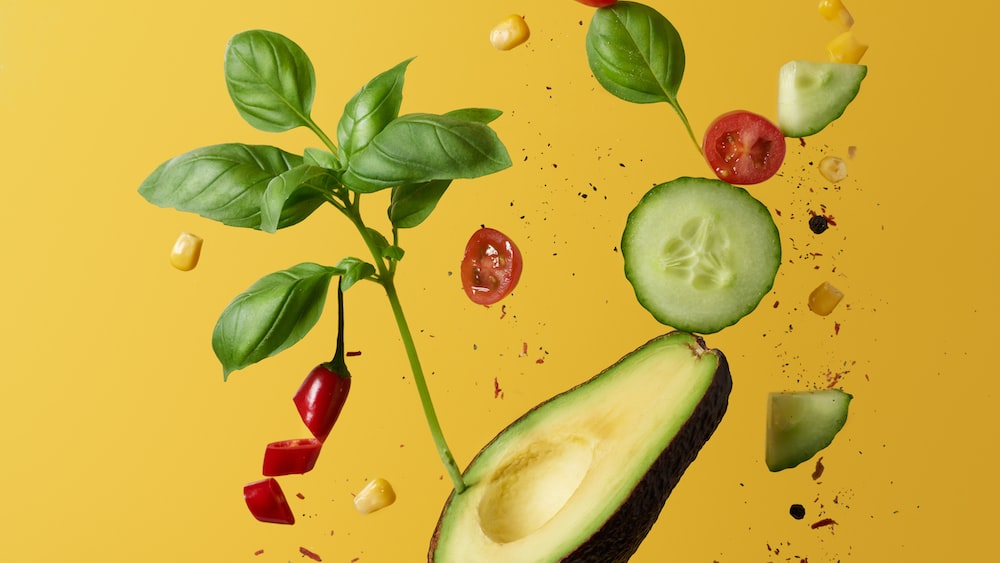
Vitamins and Minerals in Mullein Tea
When appreciating a cup of Mullein tea, you’re not only savoring its unmistakable herbal flavor, but you’re also ingesting a concoction that’s a powerhouse of nourishing substances. Our friendly neighborhood nutritionists share that Mullein is rich in vitamins A, B2 and B3, and C, as well as minerals like potassium, iron, and magnesium.
Now, you might be wondering, “What do these vitamins and minerals actually do?” Well, each has its own health benefits. For instance, Vitamin A maintains eye health, Vitamin B reduces the risk of stroke while Vitamin C enhances your immune system. Meanwhile, potassium regulates fluid balance, iron is crucial for blood health, and magnesium aids with nerve function.
Antioxidant Properties of Mullein Tea
Now, aside from vitamins and minerals, what makes mullein the star of the tea world are its antioxidant properties. Yes, those same antioxidants that send damaging free radicals scampering like misbehaving kids at a playground. Mullein tea contains flavonoids, saponins, and tannins, which are powerful antioxidants.
According to a publication by the International Journal of Molecular Sciences, these antioxidants potentially help to protect the body against oxidative stress. And you know what that means – Mullein tea is like an inner-fortress, standing tall against the ageing process and many other health ailments.
How to Prepare Mullein Tea
Embarking on the journey towards making your own cup of Mullein tea is as exciting as delving into that pile of presents on Christmas morning. Well, maybe not that exciting, but it’s surely a rewarding process. Plus, you won’t need to make a trip to a store, as this homey tea recipe is easily whip-up-able in your own kitchen.
Ingredients Needed for Mullein Tea
Whipping up this health-packed tea is a no-brainer really. The ingredient list is as simple as it gets.
- Mullein leaves (fresh or dried)
- Water
- Optional: lemon or honey to taste
Yep, that’s it! Seems too simple, right? But don’t be fooled, even with this minimal cast of ingredients, the tea packs a flavor punch strong enough to keep Mike Tyson on his toes.
Step-by-Step Preparation Guide
Buckle up folks, because we’re about to embark on the magical journey of brewing Mullein tea.
- Begin by taking 1 tablespoon of mullein leaves per cup of tea.
- Pour boiling water over the leaves and let it steep for about 15 minutes.
- Once the tea has steeped, strain it using a fine mesh strainer.
- Your tea is ready to rock and roll! Don’t forget to add your trusty companions – a squeeze of lemon or a drizzle of honey – to amplify the flavor.
No rocket science here, just simple steps leading to a divine cup of wellness.
To brew Mullein tea, take 1 tablespoon of mullein leaves per cup, steep in boiling water for 15 minutes, strain, and enhance the flavor with lemon or honey.
Using Mullein Tea for Lung Health
Imagine treating your lungs to a rejuvenating spa session, right in the comfort of your own body. Well, grabbing a steamy mug of Mullein tea isn’t so far off from that analogy. So, let’s explore how this herbal wonder aids in lung health.
How Mullein Tea Aids in Lung Health
Now, how does downing a cup of Mullein tea translate to healthier lungs, you ask? Evidently, Mullein is well-known for its exceptional abilities to soothe respiratory conditions. More importantly, it helps in alleviating cough symptoms, whether they originate from a common cold or a more severe condition such as bronchitis.
A study published in the Journal of Ethnopharmacology states that Mullein boasts anti-inflammatory and antimicrobial properties which help reduce mucus production and inflammation. Ergo, the next time you’re grappling with a stubborn cough, reach out for a cup of soothing Mullein tea.
Other Health Benefits of Mullein Tea
Mullein tea isn’t a one-trick pony, no siree! This magical brew’s benefits extend beyond respiratory health.
Firstly, Mullein tea is known for its analgesic properties. That’s a fancy way of saying that this herbal remedy can help alleviate pain. Whether it be a headache brewing at the temples or those pesky menstrual cramps, Mullein tea may offer some much-needed relief.
Secondly, research has shown that Mullein tea could also aid in digestion. Pineapple isn’t the only player in the bloating-battlefield, folks; Mullein tea’s ability to stimulate digestion can help kick that bloated feeling to the curb. Drinking a cup after meals might just save you from partaking in the dreaded “unbutton-the-jeans” routine.
Lastly, Mullein tea is known to promote healthy skin. Sipping on this tea could potentially help delay the appearance of those pesky fine lines we try so hard to ignore.
Potential Side Effects of Mullein Tea
Now, before you start chugging Mullein tea like there’s no tomorrow, remember – every magic potion comes with its own set of considerations. So, let’s explore some potential side effects of this herbal wonder.

Common Side Effects
Hold your horses, tea lovers! As delicious and beneficial as mullein tea is, it’s not exactly a “drink as much as you want, whenever you want” kind of tea. Yes, it takes a bit of a buzzkill demeanor here, but it’s for the sake of your body. Some common side effects to be aware of include skin irritation when applied topically or rarely gastrointestinal disturbances when taken orally. Rarely – and I mean as rarely as finding a four-leaf clover – some individuals might have allergic reactions to mullein.
So, if you find yourself itching as if you just cuddled with a colony of fire ants or your stomach is playing a symphony that would put Beethoven to shame, it’s best to consult with a medical professional. Now, don’t go dropping your cup of mullein tea just yet. Most of these symptoms only occur if you’re part of a specific few who are sensitive to the plant.
Precautions and Considerations
Just as you wouldn’t step off a high dive without checking the water depth, there are a few things to keep in mind when incorporating mullein tea into your diet. Its consumption is generally safe for most adults when taken by mouth or applied to the skin in appropriate amounts. This is not just a tale spun from fancy, but based on credible research, the magical mullein plant has been around for centuries, providing health benefits without major safety concerns.
Now picture this: You’re excited, about to take a sip of your freshly brewed mullein tea, rich with beneficial ingredients, when suddenly you recall reading about potential allergies. As rare as they may be, some people might be sensitive to the plant. So, to be on the safe side, it’s recommended to start with small quantities when you first introduce it into your diet. Just as you wouldn’t speed down a slope on your first day of skiing, right?
Also, it’s best to keep this tea out of the reach of children, but we’ll have more on that later. Lastly, if you’re pregnant or nursing, it’s wise to use mullein tea with caution or consult your healthcare professional before making it a part of your daily regimen. Just like checking with an interior designer before going all in on that Pinterest-inspired neon green kitchen, right?
FAQs
1. How often can I drink Mullein Tea?
How often mullein tea should be consumed might concern new sippers. Well, considering its gentle nature and beneficial properties, it’s generally safe to consume 1 to 2 cups every day. However, always pay attention to your body’s response and adjust the quantity if needed.
2. Can children drink Mullein Tea?
Children and mullein tea is another common debate. Though it’s generally safe, it’s advisable to exercise caution and consult a pediatrician before introducing it regularly into a child’s diet. And remember, never without your supervision.
3. Can I drink Mullein Tea while pregnant or breastfeeding?
Pregnancy or breastfeeding does raise specific concerns compared to one’s usual need for mullein tea. Although it’s the wisest choice to consult your healthcare provider, occasional consumption in moderate quantities is generally considered safe during this time.
4. Where can I buy Mullein Tea?
Mullein tea can be found in a range of physical locations and online. Organic health food stores, the tea sections of supermarkets, or a quick search on your favorite online marketplace can land you a packet. And yes, you might even spot it on my Pinterest -Sobia Khan’s Tea Collection board!
Conclusion
And there we have it – the buzzing dance of mullein tea through history, from an ancient remedy to our modern-day cups. Imprinted in the annals of herbalism, mullein stands tall as a testament to nature’s brilliance. Whether you sip it for its lung-loving properties, for its resilience against invaders (that’s infections in less dramatic terms), or for its generous dose of vitamins and minerals, our beloved mullein tea never ceases to gift its fans.
Let’s offer a toast to this magnificent herb with your next cup of mullein tea. And remember, because you’ve been armed with knowledge – be mindful of any reactions, use with care, and above all, enjoy. After all, life’s too short for less-than-awesome cups of tea, right?
With all the warmest intentions for your tea sipping, Zoe.

